

 Final comment: More demands will naturally follow to empower this banana republic dictatorship disguised as the new "American Socialism...."
Final comment: More demands will naturally follow to empower this banana republic dictatorship disguised as the new "American Socialism...."http://www.youtube.com/watch?index=0&feature=PlayList&p=0C4B5B3F75BFAAF4&v=o5bXJPr5MBE&gl=US&playnext=1
Cheney assassination team involved Pentagon chain of command
http://www.conversationswiththecrow.com/
Pentagon officials revealed important details of Vice President Dick Cheney's Joint Special Operations Command (JSOC) assassination at a Special Operation/Low Intensity Conflict (SOLIC) conference in Arlington, Virginia just weeks before the U.S. invasion of Iraq.
Reporting to the Pentagon's Undersecretary for Plans and Policy Douglas Feith, the assassination team was known as "Black Special Operations Forces" or "Black SOF" and the assassination team were part of a group responsible for "special programs," according to information revealed at the conference sponsored by the National Defense Industrial Association (NDIA).... http://www.vanityfair.com/politics/features/2010/01/blackwater-201001
The special hit squads used by Cheney were part of a Bush White House program, initiated by the neo-conservative cell in the Pentagon around Feith and Deputy Defense Secretary Paul Wolfowitz that, according to Pentagon officials consciously shifted policy "to the right." The policy, known as "defensive intervention," gave the U.S. military the authorization to pursue targets for the defense of the country. The actual implementer of the Cheney policy was Robert Andrews, the then-Principal Deputy Assistant Secretary of Defense for SOLIC, who stated in his remark on February 11, "the U.S. must take quick action against likely sponsors of terrorists . . . without waiting for a basis of legal evidence." Andrews also stated that the standing orders for JSOC and SOF personnel were to "take asymmetric warfare into the heart of terrorism and destroy it."
Andrews also stated that "targeted assassinations" were one means for defensive intervention. He declared, "If I could take out Saddam Hussein, I'd do it. My Secretary wouldn't let me do it, but I'd do it." At the time, the assassination of the foreign leader such as Hussein was prohibited by Executive Order 12333, which bans such actions against foreign political leaders.
Andrews revealed the reason that SOF personnel were used by the Cheney team to carry out assassinations was because they could easily get into otherwise denied areas under the aegis of "training" and "counter-narcotics" programs. He cited the example of Uzbekistan as one country where U.S. SOF forces operated more or less freely after 9/11. Andrews added that SOF were "sources for collecting intelligence in host countries" and that "training contacts are fungible, we can use them for counter-narcotics but for 'other things,' as well." Andrews also stated that counter-narcotics "played a big role in the Summer [0f 2002] allowing us to go in." He revealed that SOF personnel were active in Colombia, Venezuela, and Ecuador in the Summer of 2002 and that they did "other things." Venezuelan President Hugo Chavez narrowly escaped a coup against him in April 2002 that was supported by U.S. SOF teams.
The Pentagon's Joint Combined Education and Training (JCET) program gave the JSOC Special Forces team carrying out "defensive intervention" access to 59 countries under the cover of 139 "training missions." Detainee operations in Guantanamo and other detention centers were also part of the JSOC/SOF mandate.
Much of the defensive intervention strategy originated with the contractor Booz Allen and was part of a larger "strategic psychological operations" program initiated by the Pentagon. Under the umbrella of "influence operations," the program also targeted, according to one Pentagon consultant, "activists, anarchists, as well as opportunists" as the new terrorists. Specifically, animal rights and environmental activists were cited in the "activist" category. Infuence operations were green-lighted by both Cheney and President George W. Bush. Bush justified the program to Pentagon officials by saying "we're bringing justice to the terrorists."
SOF personnel charged with assassinating suspected terrorists also operated in the Philippines in 2002 as part of Operation Balikatan, a joint operation with Philippines Special Operations personnel.
The JSOC/SOF personnel reportedly operated in sensitive locations abroad, including Bosnia. Personnel possessed Top Secret/Sensitive Compartmented Information clearances and access for the Cheney-Wolfowitz-Feith "defensive intervention" program.
Pentagon officials also revealed that SOF personnel operated domestically under statute granted in the USA PATRIOT Act known as "consequence management."
JSOC/SOF also maintained a "less-than-lethal" program of using against their targets "pepper spray projectiles, ring-shaped rubber bullets, electro-static devices to immobilize vehicles, electro-magnetic devices to disable automobile electronics, light scattering particles to confuse crowds, and electro-shocking devices to immobilize crowds." It was conceded that the electric discharge devices could also immobilize pacemakers and aircraft, which could have lethal consequences.
Although the CIA claims it kept a wary distance from the Cheney assassination program, there was two countries where the CIA directly funded an assassination in the waning days of the Clinton administration, an indication that at least part of the Cheney program was already in existence prior to his entering office....One is in Lebanon, where a black operations team was working hard to assassinate Mr. Elie Hobeika since 1997.... Shortly before the January 2001 assassination of Congolese President Laurent Kabila in the Democratic Republic of Congo, one State Department witness at the U.S. embassy in Kinshasa personally saw large sums of cash arriving at the CIA station at the embassy said to be used for a "special operation." Four days before Cheney's inauguration as Vice President, Kabila was gunned down in a palace coup....
A series of reports has shown JSOC taking on greater responsibility, especially in areas traditionally covered by the CIA. As recently as this weekend, The New York Times reported a secret "black jail" facility run by "military Special Operations" in Afghanistan. Descriptions of the detention center are strikingly similar to those of CIA "black sites," which Obama ordered closed in his first week in office. In Pakistan, JSOC reportedly runs a UAV (unmanned aerial vehicle, or predator drone) program that rivals or exceeds that of the CIA. It may even be responsible for many of the UAV strikes attributed to the CIA. An unnamed military intelligence official told The Nation's Jeremy Scahill, "So when you see some of these hits, especially the ones with high civilian casualties, those are almost always JSOC strikes." The New Yorker's Seymour Hersh reported that the task of securing Pakistan's nuclear arsenal, should it be compromised by extremists, falls to JSOC.
The military at large has also felt the growing influence of JSOC. Indeed, General Stanley McChrystal, now the top military commander in Afghanistan, led JSOC from 2003 to 2008. McChrystal's extensive special operations in Iraq, credited as crucial in the country's stabilization, earned both him and JSOC wide support in the military and in Washington. In his high-powered role in Afghanistan, McChrystal is increasingly turning to his old command. Spencer Ackerman reports that JSOC's current leadership is "playing a large and previously unreported role in shaping the Obama administration's Afghanistan and Pakistan strategy." That new influence includes strategic decision-making and direct involvement in the more traditional warfare conducted by the conventional military. Ackerman writes:
In his Afghanistan review, McChrystal said that a key goal for him would be to increase coordination between his NATO command and the independent command of JSOC, which suggested that the dichotomy between using Special Operations Forces for counterterrorism and conventional forces for counterinsurgency was eroding.More evidence of the the growing special operations footprint can be found in the Special Operation Command's latest budgetary requests, which include 2,000 all-terrain vehicles and $7 million in training for handling detainees. All of which begs the question, Is JSOC an intelligence agency or a branch of the military? It is technically part of the military hierarchy, but its de facto status may be more complicated. Though it's unclear who JSOC currently reports to, it developed under McChrystal as a tool of the Bush White House. In a story on JSOC's contracting of private military firm Blackwater, Scahill quotes former Col. Lawrence Wilkerson, the former chief of staff to Secretary of State Colin Powell:
"What I was seeing was the development of what I would later see in Iraq and Afghanistan, where Special Operations forces would operate in both theaters without the conventional commander even knowing what they were doing." ... Wilkerson said that almost immediately after assuming his role at the State Department under Colin Powell, he saw JSOC being politicized and developing a close relationship with the executive branch. He saw this begin, he said, after his first Delta Force briefing at Fort Bragg. "I think Cheney and Rumsfeld went directly into JSOC. I think they went into JSOC at times, perhaps most frequently, without the SOCOM [Special Operations] commander at the time even knowing it. The receptivity in JSOC was quite good," says Wilkerson. "I think Cheney was actually giving McChrystal instructions, and McChrystal was asking him for instructions. ... At that point you had JSOC operating as an extension of the [administration] doing things the executive branch--read: Cheney and Rumsfeld--wanted it to do. This would be more or less carte blanche. You need to do it, do it."It's hard to say exactly why JSOC's authority is being expanded so rapidly. It could be little more than internal politics. The CIA was widely disgraced by revelations that it was funding Ahmed Wali Karzai, brother of Afghan President Hamid Karzai and a big player in the opium trade that indirectly funds the Taliban. The CIA has also been embattled in a politically contentious turf war with the Director of National Intelligence, as Marc reported. Or, McChrystal may simply be giving his former colleagues a leg up, or any number of back-room political machinations. But I have a hunch this bit from Scahill's story could have something to do with it:
The military intelligence source says that the CIA [predator drone] operations are subject to Congressional oversight, unlike the parallel JSOC bombings.President Obama has had a tough time surrendering Bush-era executive powers on national security. The use of JSOC as an independent intelligence and military force run out of the White House and unconstrained by congressional oversight would be tough to resist for any president....

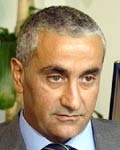
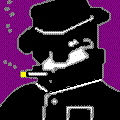



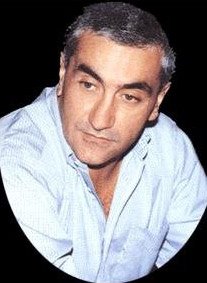

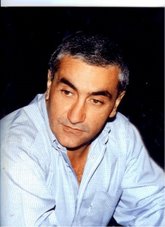
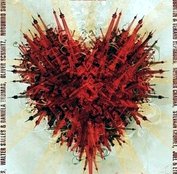
(e)SP_A0012_edited.jpg)



